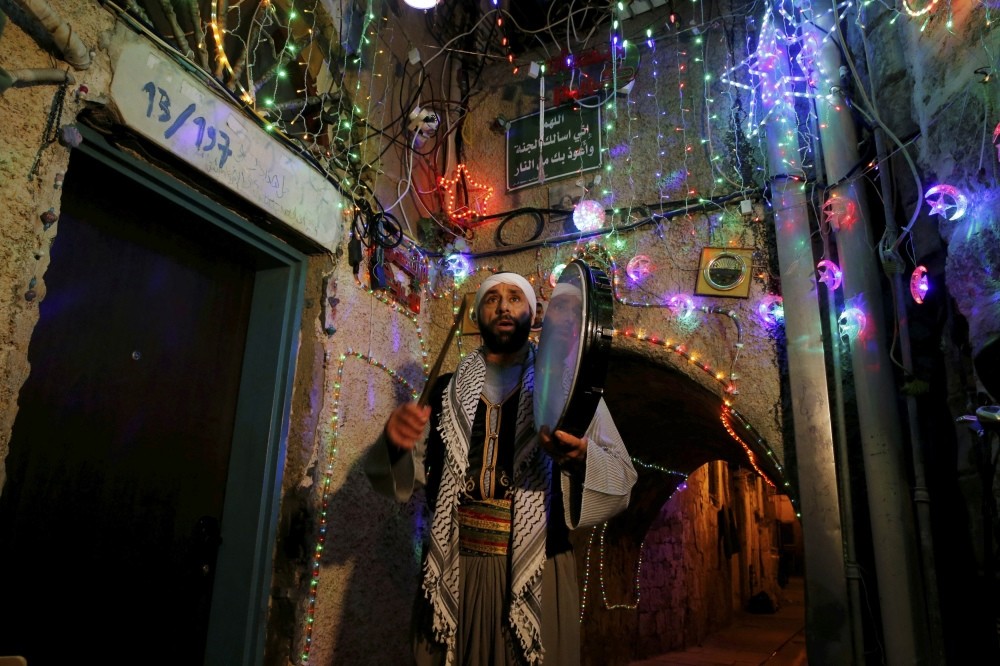Ramadan, the holiest month in Islam, is observed by millions worldwide through fasting, prayer, and reflection. While its core spiritual significance remains the same, cultures across the globe have developed unique traditions that add a local flavour to the observance. From Egypt’s glowing Fanous lanterns to Turkey’s Ramadan drummers, and Indonesia’s lively Ngabuburit, each country celebrates Ramadan in its own special way.
In Singapore (and Malaysia), we have lively Ramadan Bazaars with markets that sell street food like murtabak, ayam percik, and kuih-muih, keeping the traditional “kampong spirit” alive. This year, Ramadan in Singapore is expected to start on March 1 and end on March 30.
These customs not only enhance the festive atmosphere but also reflect the rich diversity of Muslim communities worldwide. Here are 5 unique Ramadan traditions from around the world:
Fanous Lanterns (Egypt)

In Egypt, Fanous lanterns are a symbol of Ramadan where streets, homes, and mosques are decorated with these colourful illuminations. The tradition dates back to the Fatimid era when people welcomed the caliph with lanterns during Ramadan. Made from metal and tinted glass, they come in many shapes and sizes, and were originally used to hold candles or oil and a wick.
In Cairo and other Egyptian cities, markets are filled with Fanous, some handcrafted using traditional techniques passed down for generations. Many children receive small lanterns as gifts and enjoy singing Ramadan songs while carrying them around the neighbourhood.
Mesaharati (Middle East & North Africa)

In countries like Syria, Lebanon, Egypt, Palestine, and Morocco, a Mesaharati (drummer or town crier) walks the streets before dawn, calling people to wake up for Suhoor (pre-dawn meal) by beating a small drum or wooden clappers while reciting prayers, praises of God, or even personalised wake-up calls. At the end of the month, he often goes door to door receiving small gifts or donations as a token of appreciation for his service.
This tradition dates back to the early Islamic era, when there were no clocks or alarms, and communities relied on the Mesaharati’s voice to ensure they ate before Fajr (dawn prayer). In Morocco, he wears a traditional djellaba (long robe) and carries a lantern, symbolising light and guidance. Although modern technology has made this practice less necessary, it remains a cherished cultural and spiritual tradition in rural areas and historic districts.
Ramadan Drummers (Turkey)

In Turkey, a centuries-old tradition sees Ramadan drummers (Ramazan Davulcusu) walking through the streets before dawn, beating large drums to wake people for Suhoor. This practice dates back to the Ottoman era, when drummers played a crucial role in ensuring that families did not miss their pre-dawn meal.
Dressed in traditional Ottoman attire, often wearing a fez and vest, these drummers go from street to street, sometimes chanting folk songs or religious verses while rhythmically beating their davul (a double-headed drum). In many areas, they are still highly respected, and at the end of Ramadan, they go door to door receiving tips or small gifts as a token of gratitude for their service. Last year, about 3,000 mukhtars (meaning “chosen” in Arabic, referring to someone representing a local community) marched through 1,000 Istanbul neighbourhoods, reciting ancient poems before dawn.
Ngabuburit (Indonesia)

Ngabuburit is a beloved Ramadan tradition in Indonesia, referring to the time spent waiting for Iftar (breaking fast) in the late afternoon. The term comes from the Sundanese language, originally meaning “leisurely passing the time before sunset.” The practice dates back centuries, when people in West Java would gather near rivers or open fields to relax before Maghrib.
Today, Indonesians observe Ngabuburit in various ways. Many visit Ramadan bazaars, where they buy traditional snacks for Iftar. Others spend time in parks, enjoy light sports, engage in religious activities, or organise charity events. Ngabuburit is not just about passing time—it’s a social and spiritual experience, bringing families, friends, and communities together in the warm anticipation of Iftar. The essence of Ngabuburit remains deeply rooted in Indonesian Ramadan culture.
Gargee’an (Gulf Countries)

Gargee’an is a mid-Ramadan tradition celebrated in Kuwait, Bahrain, Qatar, and the UAE, typically on the 15th night of Ramadan. This centuries-old custom is similar to Halloween trick-or-treating, where children dress in traditional embroidered clothing, go door-to-door singing festive songs, and receive sweets, nuts, and small gifts from neighbours. The word Gargee’an has two meanings in Arabic: “knocking on the door” or “a mixture of sweets and nuts.”
The origins of Gargee’an are believed to date back to the early Islamic era, and over time, it evolved into a cultural celebration that emphasises community bonding, generosity, and joy. Today, Gargee’an is widely celebrated across the Gulf, with families, mosques, and even businesses organising events featuring music, storytelling, and traditional games. The streets come alive with colourful bags of sweets, decorated baskets, and cheerful children singing well-known Gargee’an songs.
Ramadan is more than just a month of fasting—it is a time of faith, reflection, and community, enriched by diverse traditions that vary across cultures. As Ramadan continues to be observed worldwide, these traditions serve as a reminder of the rich cultural heritage that unites Muslim communities across continents.
If you have Muslim colleagues, friends or neighbours, the simplest greeting is a ‘Ramadan Mubarak’ (‘Blessed Ramadan’) or ‘Ramadan Kareem’, (‘Generous Ramadan’).











